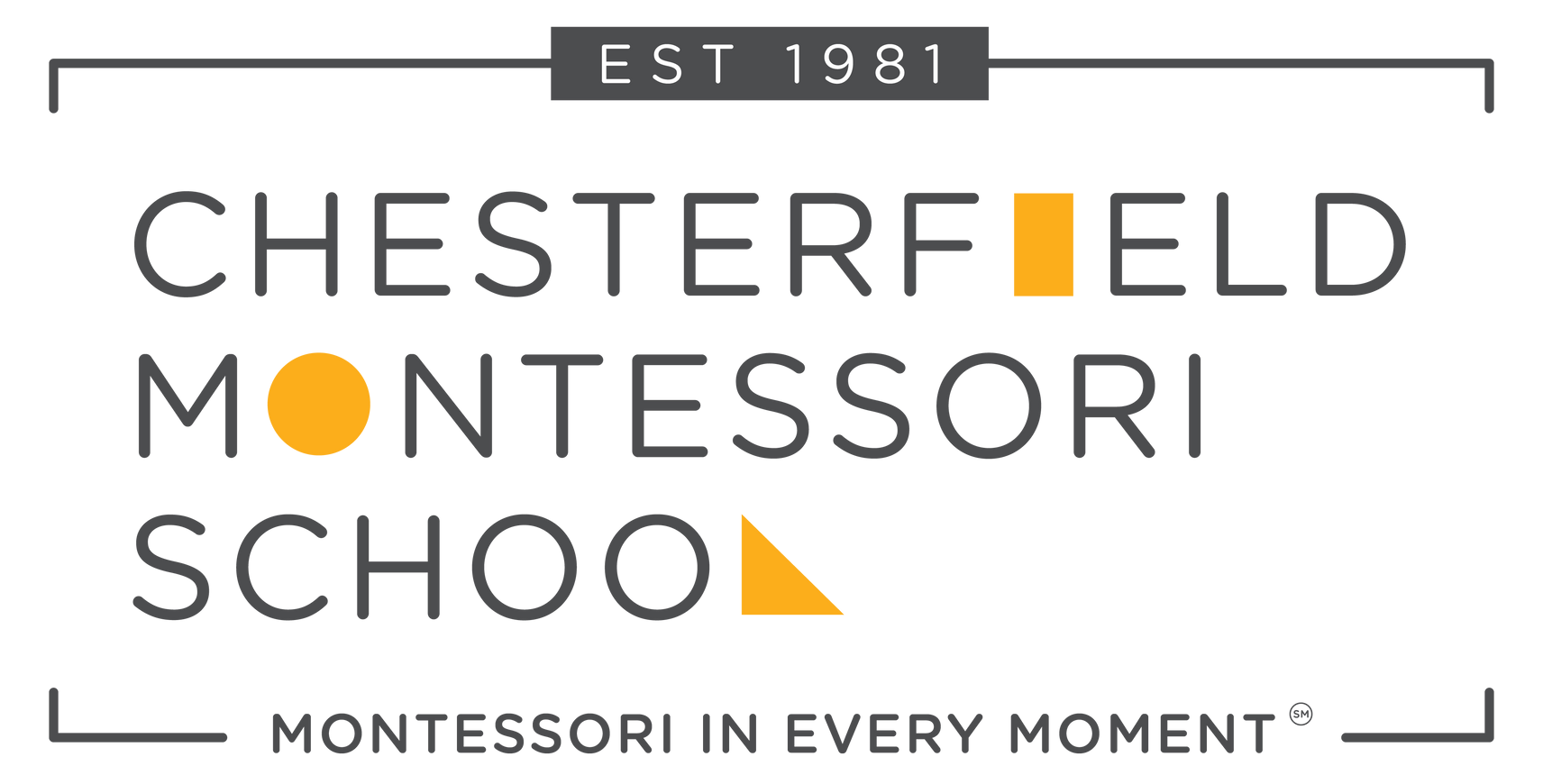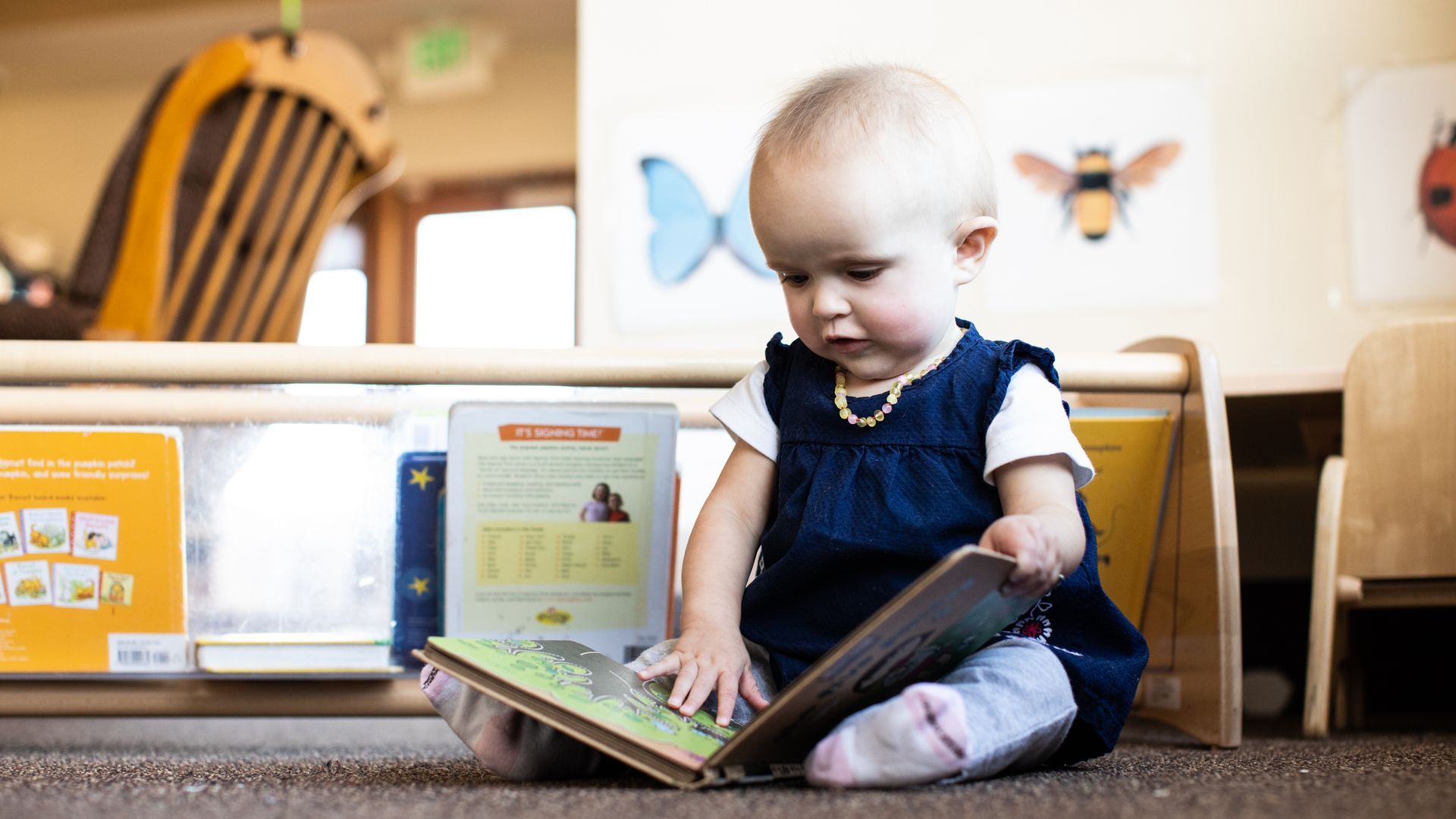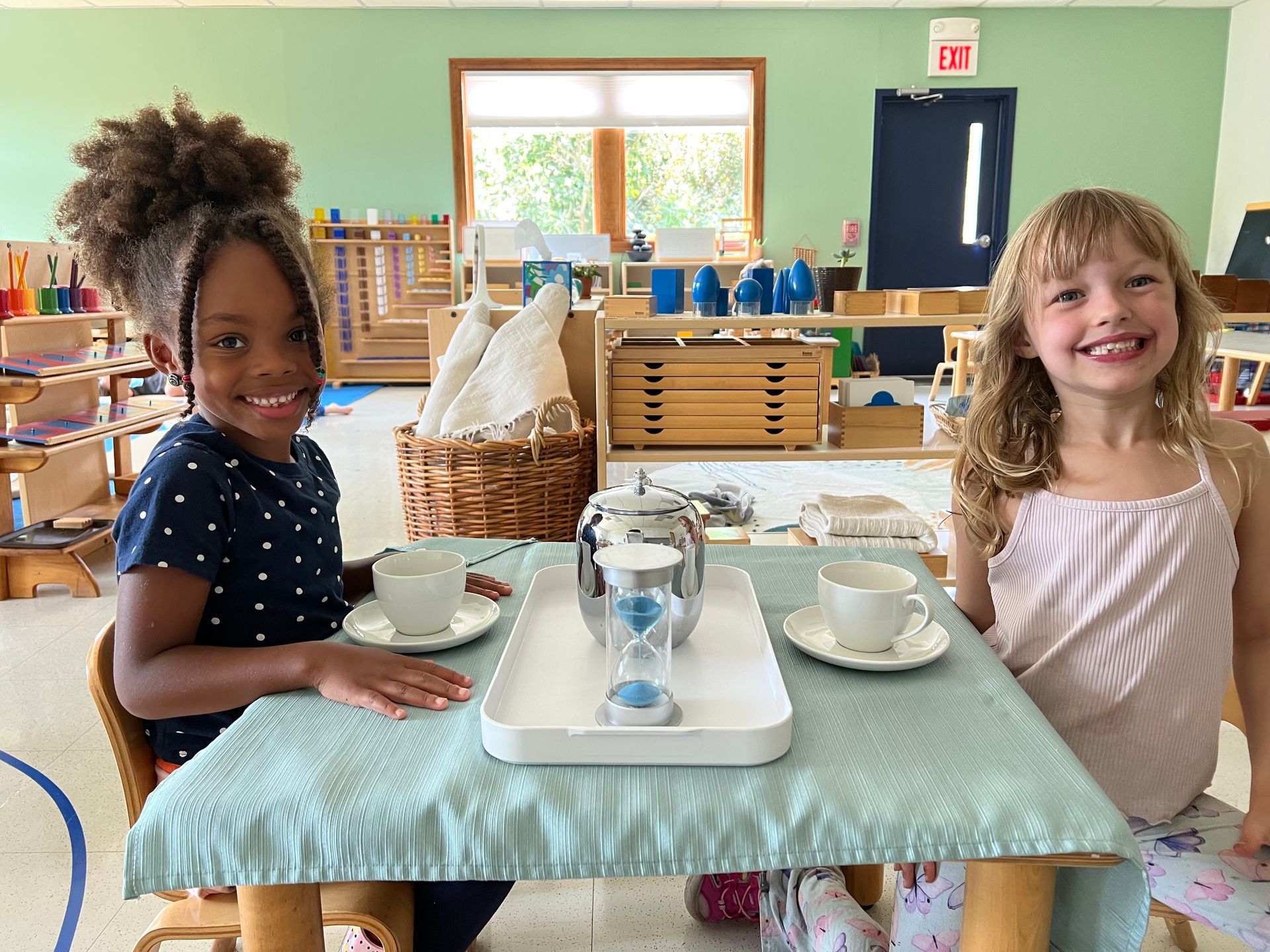Toddler Community
16-36 months
Toddlers, like other children and adults, want to participate fully in their society. They want to challenge themselves and perform important, meaningful activities. This desire is especially strong during the toddler age, when a child begins to master the balance, coordination, and reasoning skills needed to participate in real work. During this stage in their lives, their experiences construct the basis for their personality and lay the foundation for the adult they will become.
Trained Montessori Teachers
In a Montessori Toddler Community, a trained Montessori teacher presents individual and group lessons, guiding each child’s progress individually. Shelves, tables, sinks, and toilets are custom-sized for the toddlers to allow for full exploration and participation. The beautiful, specially-developed Montessori materials appeal to the natural curiosity of the children. The materials are designed to be challenging, but also to allow children to learn and succeed on their own. This leads to great inner security, high self-esteem, a positive self-image, and strong habits of concentration.
Prepared Areas
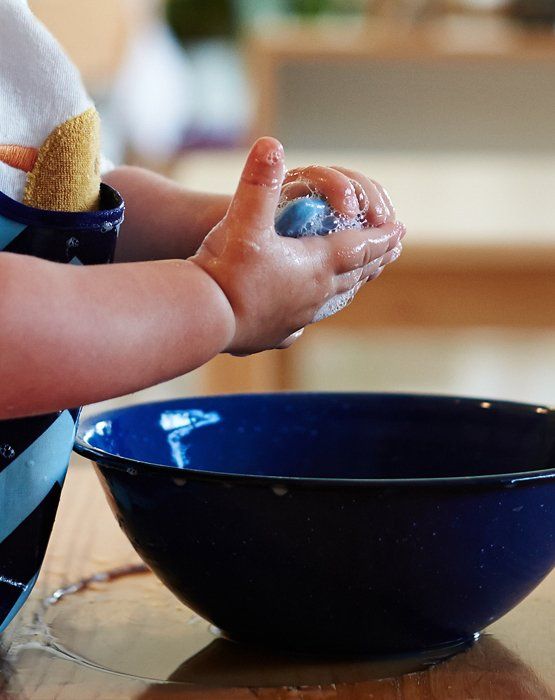
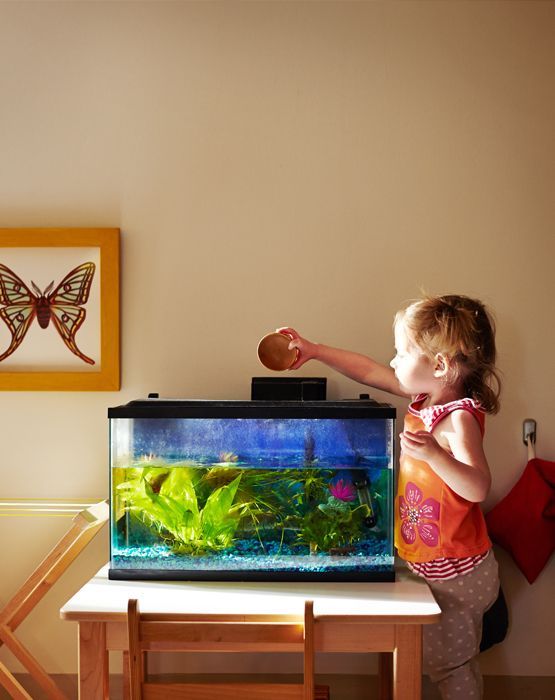
The Toddler Community contains several carefully prepared areas:
PRACTICAL LIFE ACTIVITIES
Care of Self – washing hands, dressing, toilet independence, preparing food
Care of Others – grace and courtesy lessons, teaching and learning from others, socialization skills
Care of Environment – Washing, dusting, polishing, sweeping, watering, raking, folding laundry
LANGUAGE ACTIVITIES
Montessori language activities for toddlers build on their natural tendency to listen and absorb everything they hear. Children in a Montessori toddler classroom are exposed to a rich vocabulary, and they explore the seemingly endless opportunities for naming objects. The teacher and assistant have peaceful, respectful conversations with the children, and children model these respectful conversations with one another. Language materials are matched with real objects to reinforce physical and spatial concepts as well as vocabulary development. Language is also developed through self-expression, storytelling, and questioning exercises.
PROBLEM SOLVING AND LOGICAL THINKING
The Toddler Community contains many activities that develop logical thinking, such as sorting or matching materials and puzzles. Most materials are self-correcting to give the child control of error in the work. Materials become progressively more complex as the child develops skills.
ART AND MUSIC ACTIVITIES
Singing, rhythm activities, and playing instruments are all part of the daily activities in the Toddler Community. Art is explored in the form of drawing, painting, cutting, gluing, and collage making.
KITCHEN AND FOOD PREPARATION
Eating is an important social event for the children. Full-day toddlers eat family-style with their teacher. They participate actively in the preparation of the meal: setting the table, serving, passing food, and cleaning up after the meal. The children also prepare and serve their morning and afternoon snacks, using a toddler-sized sink and counter area.
AIDS TO PSYCHO-SENSORY MOTOR DEVELOPMENT
There are materials in the classroom for sorting, cutting, sewing, and other activities that further gross and fine motor development. Skills that are enhanced include eye-hand coordination, body equilibrium, and cause-and-effect relationships. Our beautiful gymnasium also provides wonderful opportunities for large motor development.
OUTDOORS AND GARDEN
Toddlers at CMS spend part of each day outside whenever possible. They play on our shady playground, go for walks, and explore nature on our school property. They also explore our Children’s Garden, where they dig, rake, plant, weed, and harvest from the terraced planting beds. Children cut flowers from the garden and use them for flower arranging. Vegetables planted by the children are harvested and used for cooking and sharing.
Transition to Primary
When toddler children show signs of readiness – usually between two and half and three years old – they begin to visit one of the Primary classrooms. Then, when the parents, teacher, and child are ready, the child will transition fully into the Primary program. This transition happens very naturally.
Learn more on our blog!
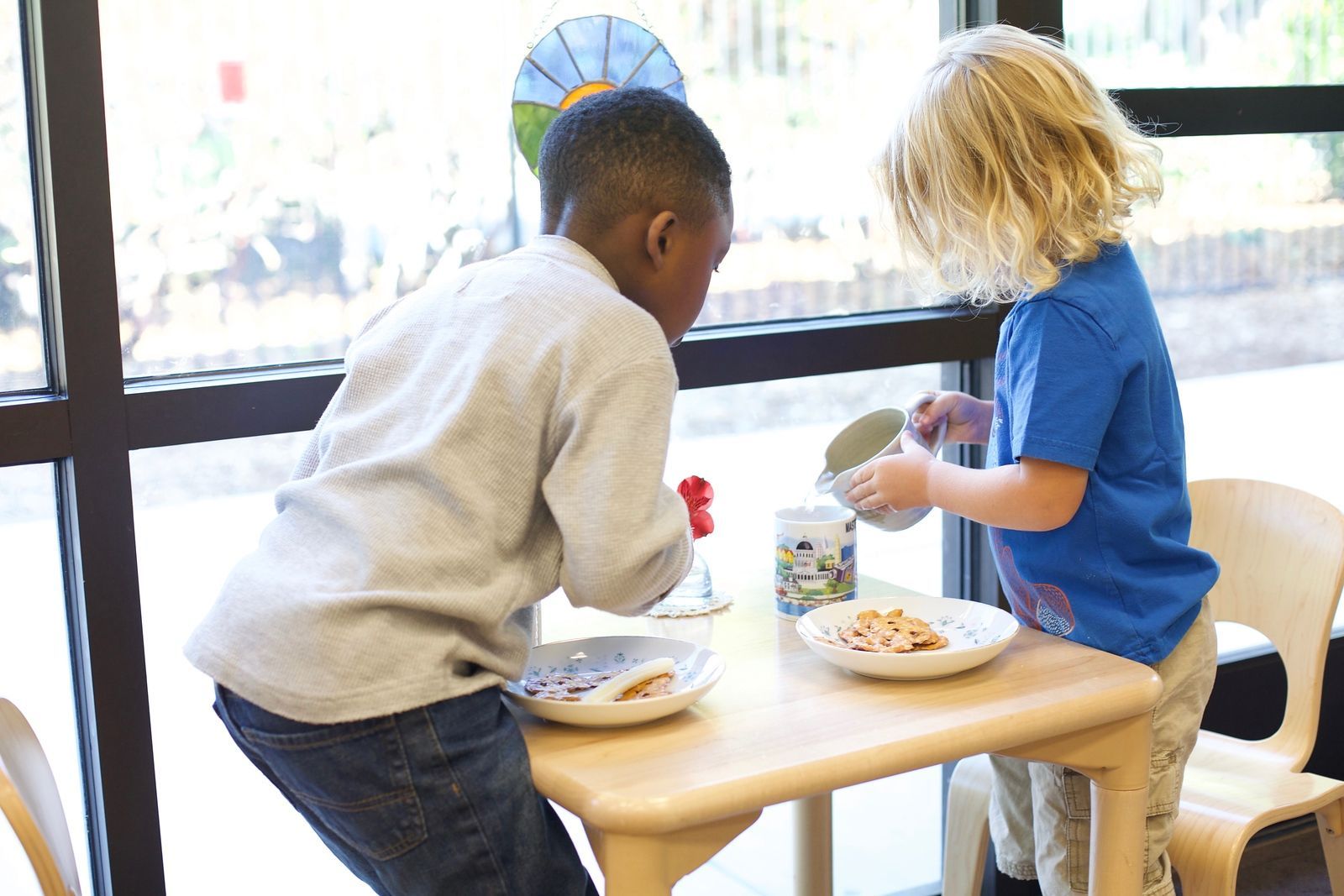
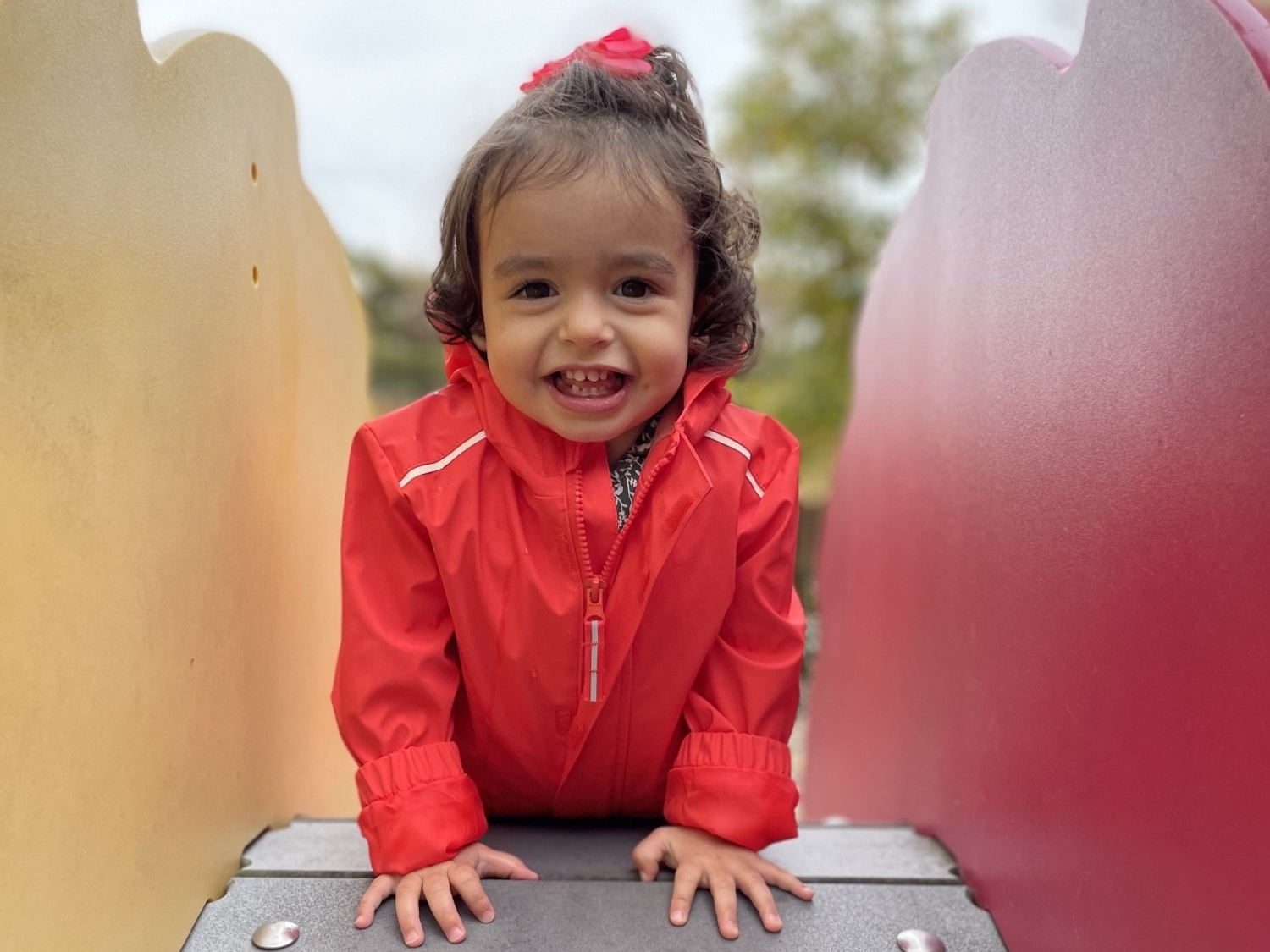
My wife and I enrolled our 16 month in Chesterfield Montessori (CMS) in September 2015 and have been impressed with the culture, the staff and the consistency with which they deliver on their promises made in their mission statement particularly:
"...nurture respect for self and others, foster a strong sense of community, and stimulate independent thinking."

